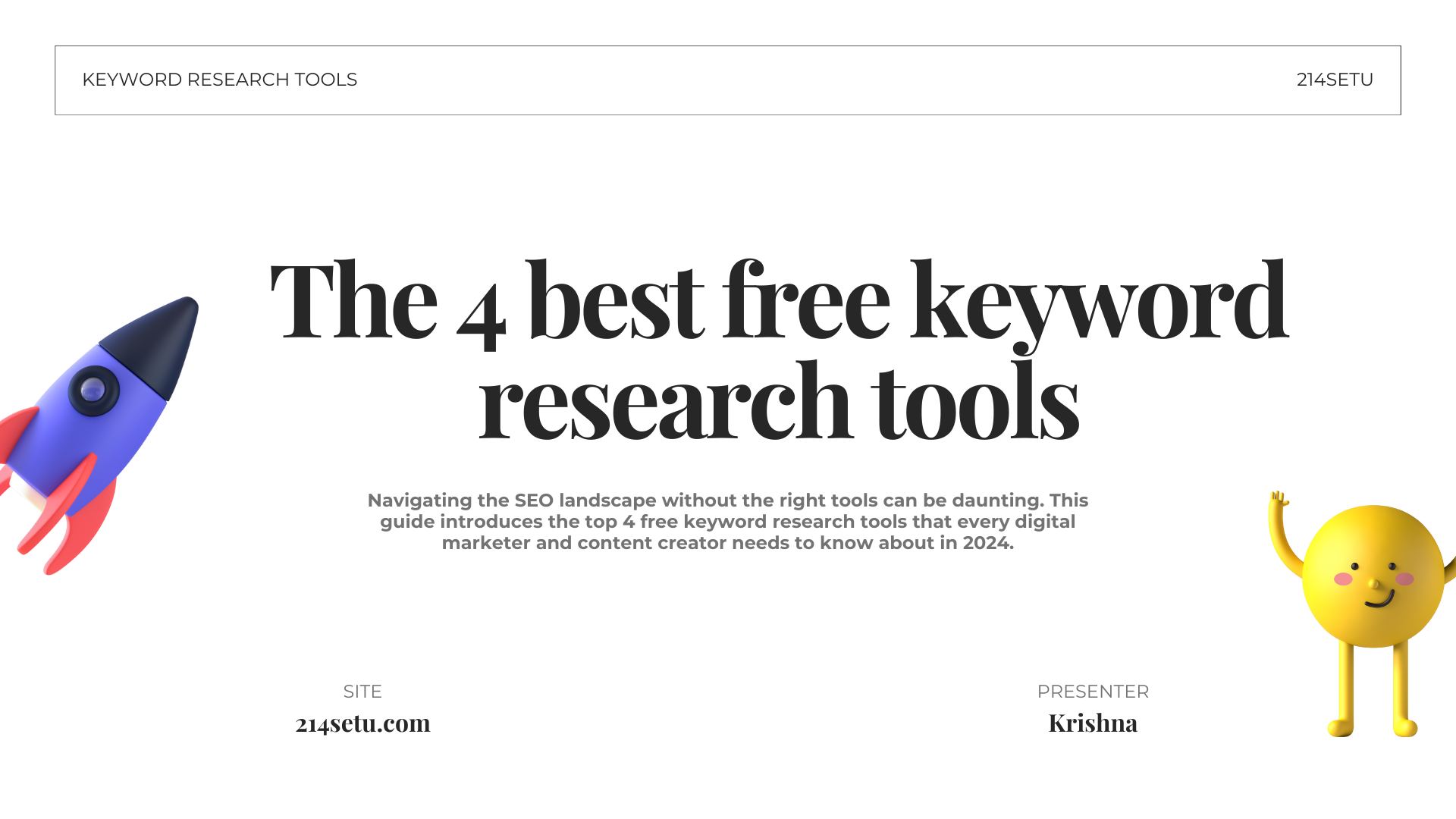
In the ever-evolving landscape of digital marketing, standing out in the crowded online space is akin to finding a needle in a haystack. But fear not, for the right tools can turn this daunting task into a walk in the park. Enter the realm of keyword research tools, the unsung heroes of SEO success. These tools are not just about finding the right keywords; they’re about unlocking the potential of your online presence. Today, we’re spotlighting the top 4 free keyword research tools that are essential for anyone looking to enhance their digital strategy: Moz Keyword Explorer, Google Keyword Planner, Ahrefs Free SEO Tools, and Semrush.
Why Should Someone Use Keywords?
Before we dive into the tools themselves, let’s take a moment to understand why keywords are the cornerstone of SEO and digital marketing. Keywords are not just words; they’re the bridge between what people are searching for and the content you’re providing. They’re crucial for:
- Boosting Visibility: The right keywords can catapult your website to the top of search engine results, making it more visible to potential visitors.
- Driving Relevant Traffic: By targeting specific keywords, you attract visitors who are genuinely interested in what you offer, increasing the chances of conversion.
- Understanding Your Audience: Keyword research gives insights into the queries and needs of your target audience, allowing you to tailor your content strategy effectively.
The Importance of Keywords in SEO
Keywords act as the backbone of SEO strategies, serving several critical functions:
- Content Optimization: They help in tailoring content to match the search intent of your audience, enhancing the relevance and authority of your website.
- Competitive Analysis: Keywords provide a window into your competitors’ strategies, enabling you to identify gaps and opportunities in your niche.
- Performance Tracking: Through keywords, you can monitor your website’s performance and adjust your SEO strategy to improve rankings and visibility.
Moz Keyword Explorer: The Jack-of-All-Trades
First up on our list is the Moz Keyword Explorer. Dubbed the best all-around free SEO keyword research tool, Moz offers a comprehensive solution for those in pursuit of SEO excellence. Its standout feature, the “Priority” score, is a game-changer, helping you determine the most valuable keywords to target. With the ability to perform 10 queries per month, each yielding 1,000 keyword suggestions and 10 SERP analyses, Moz ensures you’re equipped with the insights needed to make informed decisions.
Best For: SEO strategists looking for an all-encompassing tool with a focus on prioritizing high-value keywords.
Stand-Out Feature: The “Priority” score combines search volume, keyword difficulty, and CTR to identify the most promising keywords.
Free Plan: Yes, offering 10 queries per month with comprehensive insights.
Google Keyword Planner: The Paid Keyword Prodigy
Google Keyword Planner is your go-to for delving into the realm of paid keywords. This tool is a powerhouse for forecasting and budget planning, making it indispensable for anyone dabbling in Google Ads. Its comprehensive data offers a peek into future trends and helps in strategizing ad spend effectively. The beauty of Google Keyword Planner lies in its simplicity and depth, providing valuable insights even for those who prefer not to dabble in paid ads.
Best For: Marketers focusing on paid search campaigns and budget forecasting.
Stand-Out Feature: Forecasting features and budget planning tools.
Free Plan: Completely free, with enhanced benefits for Google Ads users.
Ahrefs Free SEO Tools: The Broad Spectrum Warrior
Ahrefs steps into the ring with a suite of tools that offer a broad spectrum of SEO insights. Not limited to Google, it extends its prowess to YouTube, Amazon, and Bing, making it a versatile choice for keyword research across platforms. The Free Keyword Generator churns out up to 150 keyword suggestions, while the Keyword Difficulty Checker provides a difficulty score and SERP analysis for the top 10 results, ensuring you have all the data needed to conquer SEO challenges.
Best For: SEO professionals and content creators looking for insights across multiple platforms.
Stand-Out Feature: Extensive keyword research capabilities for YouTube, Amazon, and Bing.
Free Plan: Yes, with up to 150 keyword suggestions and detailed difficulty analysis.
Semrush: The Tool for Advanced SEO Maestros
For the SEO maestro craving depth and granularity, Semrush is the tool of choice. It caters to advanced users with its detailed keyword data and analytics. Offering 10 analytics reports per day and tracking for 10 keywords, Semrush is for those ready to dive deep into the intricacies of SEO and emerge with unparalleled strategies. Its comprehensive database and analytical capabilities make it a heavyweight contender in the SEO tool arena.
Best For: Advanced SEO professionals seeking detailed analytics and comprehensive keyword data.
Stand-Out Feature: Granular keyword data and analytics reports.
Free Plan: Yes, with limited but powerful analytics capabilities.
Q: How do I know if my keyword research is effective?
A: Monitor your website’s performance in search results for the targeted keywords. Look for improvements in rankings, organic traffic, and engagement metrics. Tools like Google Analytics and Google Search Console can provide insights into how well your keyword strategy is performing.
Q: How can I choose the right keywords for my content?
A: Start by considering the relevance, search volume, and competition level of potential keywords. Choose keywords that are highly relevant to your content, have a decent search volume, and for which you can realistically rank, considering the competition. Tools like Moz Keyword Explorer and Google Keyword Planner can help you assess these factors.
Q: What’s the difference between short-tail and long-tail keywords?
A: Short-tail keywords are broad, often consisting of one or two words, and have a high search volume but also high competition. Long-tail keywords are more specific phrases that are longer—usually three words or more. They have a lower search volume but also less competition and typically indicate higher intent, making them valuable for targeting.
Q: How often should I do keyword research?
A: Keyword research isn’t a one-time task; it’s an ongoing process. The digital landscape and user behavior are constantly changing, so it’s important to regularly update and refine your keyword list. This could mean conducting new research every few months or whenever you’re planning to create new content.
Conclusion: Embracing the Power of Keywords
In the quest for digital supremacy, understanding and leveraging the power of keywords is paramount. The tools discussed—Moz Keyword Explorer, Google Keyword Planner, Ahrefs Free SEO Tools, and Semrush—offer a gateway to unlocking this power, each with its unique features and capabilities. By incorporating keyword research into your SEO strategy, you not only boost your online visibility but also connect more effectively with your target audience, driving relevant traffic and ultimately, achieving your digital marketing goals.
The journey to SEO success is complex, but with the right keywords and tools at your disposal, the path becomes clearer. Dive into the world of keyword research with these top free tools and watch as your digital presence flourishes. The future of SEO is in your hands; seize it with the power of keywords.
Want to learn more :
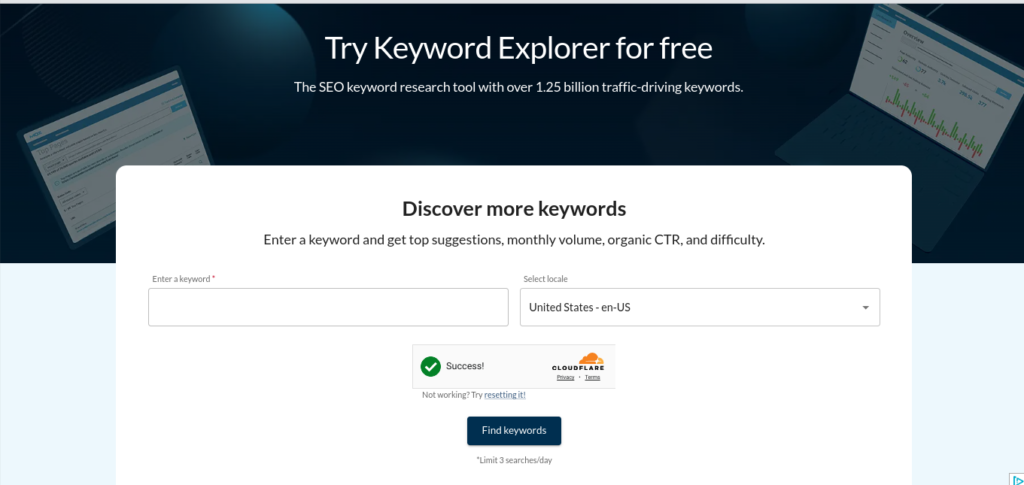
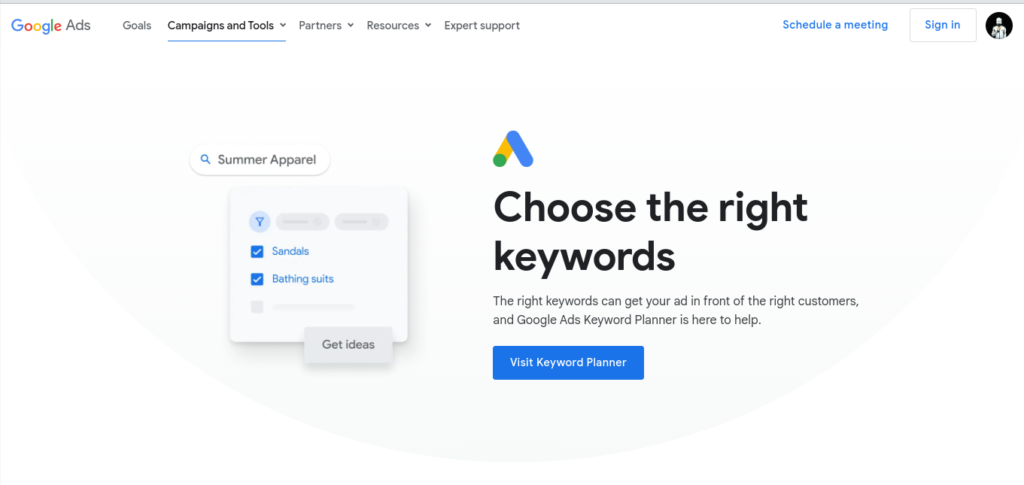
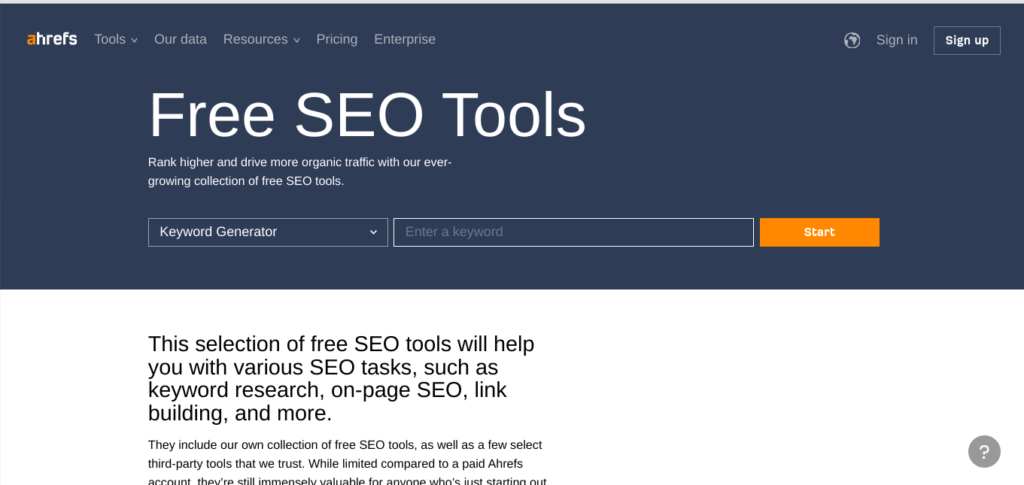
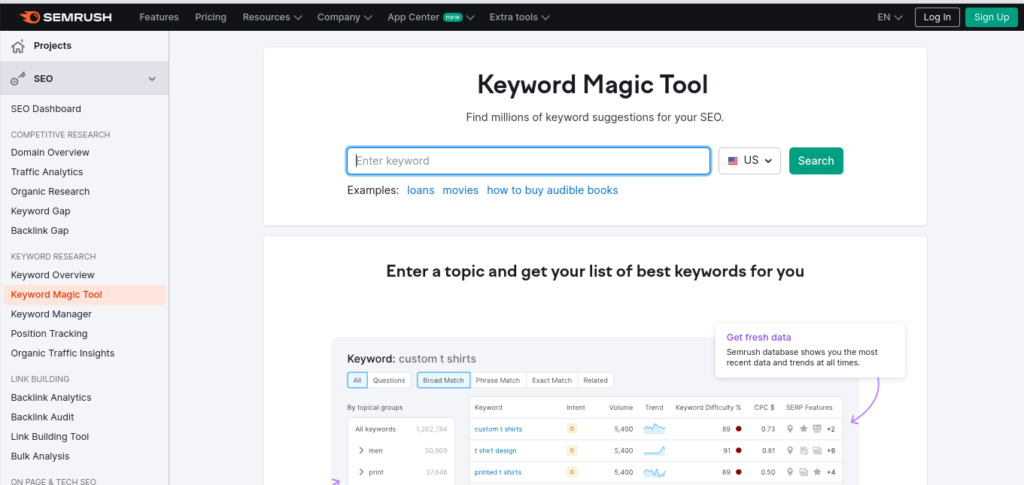


Comments are closed.